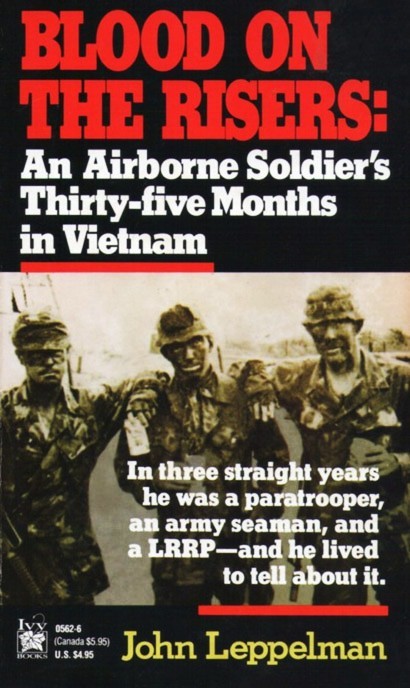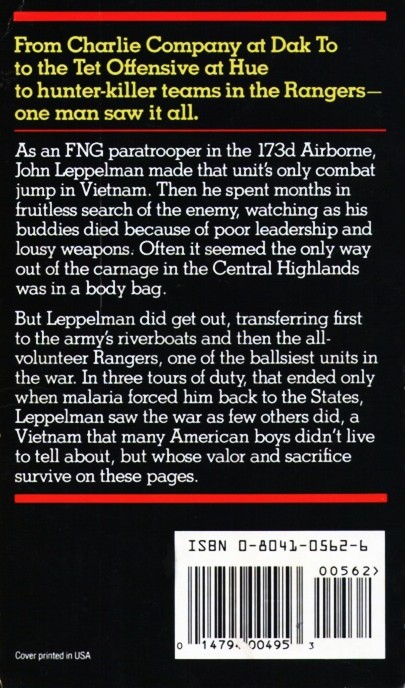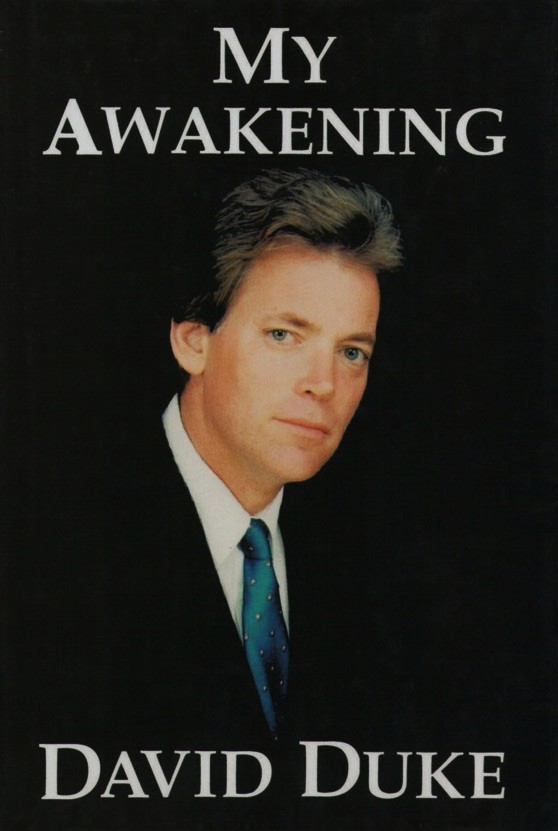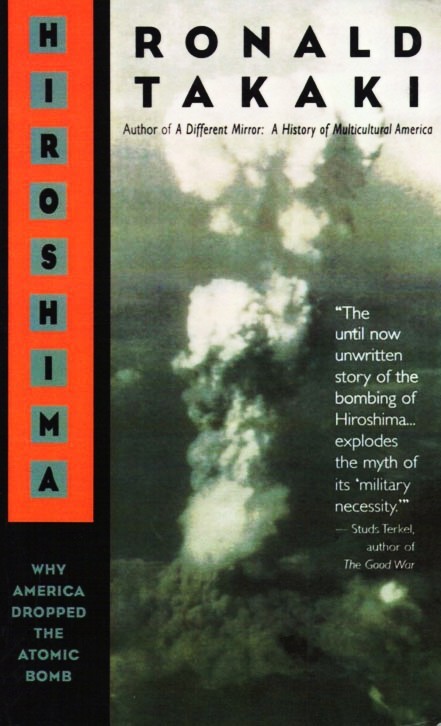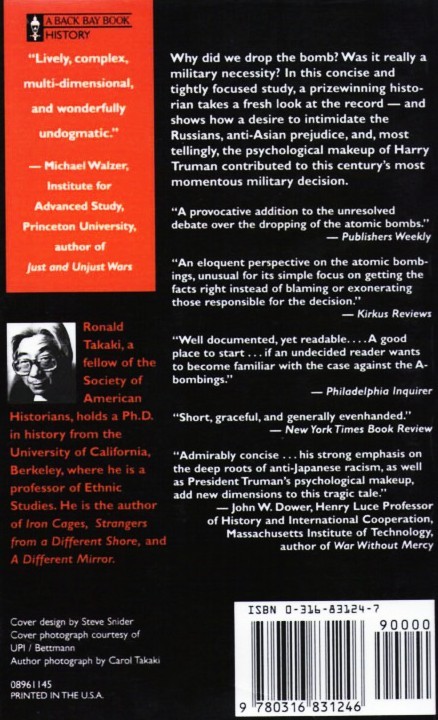

A history book should be as unbiased and as close to the truth as possible.
Unfortunately, now more than ever, history books have become entrenched in propaganda, poor research and the ever- present poisonous lies. It is exceedingly difficult, perhaps nearly impossible, to find a book written on World War Two, for example, which isn't a laughable cesspool of childish insults and lies.
With the enemies of truth controlling the press and selecting which books get published for the mainstream, one has to be more vigilant than ever these days regarding what information can be trusted. Yet small publishers, independent from the tyrants' control, are often an oasis in a desert of trash.
Here is a Pandora's box of shocking information. Once again, you have to ask yourself why do they hide this from us? Why have they re-written history?
Black freemen and slaves fighting for the Confederacy? Blacks on the homefront holding fund-raisers for the Confederate army? 25% of the Confederate Ordinance Department consisted of black men? Afro-Americans fighting and dying beside white men against the Union army which was supposed to be there to free them?
Here is a quote from Edward Smith, Dean of Minority Affairs and Professor of History at American University: 'to admit that blacks actually fought for a cause which in the minds of many 20th century Americans now stands exclusively for slavery and oppression is unacceptable to many in the country concerned with only politics and not with the realities of historical record.'
Research places the most conservative estimates of 50,000 to 60,000 blacks served within Confederate ranks. These blacks served with their Confederate counterparts, unlike the Union blacks who were segregated! Kind of reminds one of Nazi Germany, where there was no racial segregation until Allied Armies took control. Crazy eh? We've been taught the opposite of what is true on so many accounts.
What most people don't know is that slavery was already on its way out at the time of the Civil War due to the invention of the cotton gin, which did the work of many slaves and made slavery unprofitable. Of course, the majority of Southerners didn't even own slaves. The war was fought for the states constitutional right to govern themselves, not for slavery. And of course, let's not forget the ever-present specter of profit. War is big business.
Prof. Ervin Jordan writes in his book 'Black Confederates and Afro-Yankees in Civil War Virginia': 'Numerous black Virginians served with Confederate forces as soldiers, sailors, teamsters, spies, and hospital personnel... I know of black Confederate sharpshooters who saw combat during the 1862 Seven Days Campaign and [of] the existence of black companies [which] organized and drilled in Richmond during March-April 1865. Integrated companies of black and white hospital workers fought against the Union army in the Petersburg trenches during March 1865. There were several recruitment campaigns and charity balls held in Virginia on behalf of black soldiers... During March 1865 fully-armed black Confederate soldiers were seen in Richmond; one of the last Confederate prisoners at Point Lookout was described as a 'Negro reb.'
An important victory for the Confederacy in Western Louisiana was at Sabine Crossing on April 8, 1864. Louisiana raised about 1,000 military companies comprising 56,000 troops which included black regiments (see U.S. National Archives, Microcopy No. 320, C.S. Soldiers of Louisiana).
Fascinating eh? Why does the establishment keep this a secret? Why do they teach lies in our schools? Divide and conquer. Create hatred between the races. Create white guilt.
Another interesting fact is that black Confederate veterans even received pensions and attended Confederate veteran gatherings for years after the war, right alongside their white veteran comrades.
I'll end this with a quote from the book itself: '...black Confederates were not fighting for their own enslavement but sincerely believed that their ultimate freedom, prosperity, and destiny lay south of the Mason-Dixon line.'
[Above: Confederate noncommissioned officer, Sgt. Andrew Martin Chandler (left) and Silas Chandler.]
__________________________________________________________
The things they have hidden from us... they teach us that only evil white people owned slaves and that the Confederates were a bunch of redneck racist white people.
[Above: Cherokee General Stand Watie]
[Above: Cherokee Confederates reunion]
Books about war are best written by those that were there, not some 'Armchair Viking' like so many writers today.
Enter Kurt 'Panzer' Meyer. A soldier who saw nearly every major conflict of World War Two while serving in the Waffen-SS. From Poland to France to the Eastern Front and back again when he was finally captured.
This book tells a great, unbiased first hand story. It's also loaded with rare photographs and is a very easy read. And while I don't agree with the writer's criticism of some of his leaders, I can understand that much of it was born out of frustration. Those hellish last days of the Axis. When the whole world was literally coming to an end. Starving, exhausted, very little command structure, no reinforcements... it's easy to blame those above you.
Although this is technically a history book, it is a very smooth read. Unlike the legions of biased books about WW2 Japan and its soldiers, this account is Oba's own, in all its gritty and often very sad details. As the American juggernaut rolled over Saipan, a handful of Japanese soldiers and civilians refused to surrender, or die, for that matter. This is a remarkable tale of friendship and comradery. The iron will and spirit of these last Japanese defenders of Saipan even earned them the respect and admiration of their enemies on the island. They will no doubt also earn the respect of any free-thinking person reading this book! One of my favorite books in a long time!
[Above: back cover]
While at least half of this book is fairly boring stuff, with the authors relaying their memories of training and long periods of boredom, some of the content here is quite gritty and entertaining. Anyone who has done their time on the battlefield knows that the waiting is sometimes the hardest and longest part of any service. Of the two storytellers, John Rotundo's experiences are far more violent and downright grisly, sometimes even sadistic. In particular are his stories of holding a fully automatic M-16 rifle to the heads of his deceased enemies and holding down the trigger, watching their heads vibrate as bullets blow their brains out. Or the time he took the buttstock of his rifle and beat in the skull of a corpse just to see what would happen (even considering taking the brain back to base to show it off). Another time he placed the nude body of a dead woman (whom a few minutes before he had shot in the mouth and head) in the '69' position on top of her naked dead male comrade! After which he threw down a Charlie Rangers calling card on her back, leaving it for the enemy to find the gruesome scene.
War is indeed hell. Don't judge Rotundo too harshly though, for as he says, if you don't like it, don't send kids to war (he was a teenager at the time). Certainly his enemies equalled anything he or his comrades did in brutality. The Communist NVA and Viet Cong were legendary for their evil and sadism.
There is a lot of other insanity described in the book as well. Like when soldiers from Charlie Company got into a little race war with a large group of black American soldiers. Many soldiers were sent to the hospital in the ensuing madness.
There is also the bitter loss of comrades. Perhaps the one element that reminds them that they are mortal. Reminding them that death cares not whether you fight for Communism or Democracy. Didn't WW2 Germany warn the world that this would happen?!
[Above: back cover]
This is a book of the memories of an old warrior/medicine man of the American Indian tribe of the Ogalala Sioux. It's interesting to hear the versions of famous battles told here--like the battle of Little Big Horn (where General George Armstrong Custer died, or if you know your history, was murdered by the Federal government), or the massacre at Wounded Knee, from the side of the American Indians.
Black Elk, the storyteller here, who is a very old man at the time of the story's telling in 1931, relates to us how he had a series of visions beginning when he was nine. He spent the rest of his life trying to understand them, and to do what he thought the visions instructed, to help save his people from destruction.
There is a lot of timeless wisdom here, both spiritual and worldly. A deep love and understanding of nature which is so lacking today. He tells of his growing up, from his childhood first encounter with the 'Wasichus' (their term for non-American Indians), to eventually becoming a warrior and fighting the invading soldiers of the American government.
There are some crazy stories here as well. Like them finding a grave of freshly killed soldiers and digging it up. They find the soldiers have been wrapped in blankets which have been tied around their bodies. One Indian says roughly 'That's my blanket, I've been looking for it'! And takes it! The next few bodies are also stripped of their blankets in the same fashion, each saying 'That's my blanket...' Very strange. One can imagine these corpses must have been quite grisly. The blankets surely were dirty and bloodied... not to mention reeking of death.
The Indians were promised in a treaty that the land of the Black Hills belonged to them... but when gold was found, 'the metal that makes Wasichus crazy', everything changed.
Eventually his people were beaten and stripped of their land and resources. Black Elk then joined Buffalo Bill's Wild West Show in an attempt to understand the white man, and for the purpose of finding a way to save his people. He goes to New York and eventually across the sea to England, where he and his band even met Queen Victoria. He was shocked at how there were so many poor whites, nearly starving, while there were others who had more than they could ever need, but were unwilling to share. The coldness of the capitalist democratic system shocked him and he thought to himself that surely this cannot be better than the Indian way.
Eventually he ends up at Pine Ridge Reservation and lives to be an old man. This is an all too familiar story of greed, lies and broken treaties by the federal government and the virtual death of a people on the receiving end of those lies.
I had heard about Slaughterhouse-Five before, being referred to as a controversial book about the Allied fire-bombing of Dresden during World War Two... what can I say? Is it the controversial book I had heard about?
First, at the start of this book the author explains that most of it is true, based on his experiences in WW2, where he was captured by the Germans and as a POW was in Dresden during the inhuman and murderous bombing of this once beautiful medieval city.
OK... sounds good so far, right? So where does alien abduction, time travel, humans on display in an alien zoo, among other truly bizarre happenings come into play? The main character is a soldier in the writer's group of POWs, who experiences all of these aforementioned things.
This book is truly one of the strangest books I've ever read. Despite that fact, it is also an extremely clever book. Check out this exerpt below, one of my favorite parts of the book:
'He came slightly unstuck in time, saw the late movie backwards, then forwards again. It was a movie about American bombers in the Second World War and the gallant men who flew them. Seen backwards by Billy, the story went like this: ...seog ti oS
This book is about Rudolf Hess' imprisonment in Britain after his ill-fated peace attempt. It specifically deals with his confinement, torture and interrogations at an old country manor code-named 'Z'.
While I found some of this book interesting, it is permeated with the usual tired system propaganda and bias. It is incredible the psychological torture Hess endured at the hands of his sadistic captors, who used a variety of techniques in a failed attempt to break him and 'get him to talk'.
Hess believed strongly that he was being poisoned, and it's pretty clear that drugs were being secretly given to him, despite the official denial. No doubt his captors knew that to break a man's health oft times helped in breaking his will, not to mention loosening his lips while under the influence.
They put a siren outside his window, which often blared depriving him of sleep, and used a variety of other sleep deprivation techniques which no doubt made his imprisonment hell. They continually lied to him, pretending to be his friend, when often times they weren't even using their real identities and were in fact MI5 secret service agents.
It is truly despicable what the British government and her allies did to Rudolf Hess, who sacrificed himself in an attempt for peace. Of his own free will, guilty of nothing but perhaps being idealistic and having a huge heart, he flew into the arms of his sadistic captors, where he would spend the next 46 years in their dungeons, many years of which were in solitary confinement.
The human spirit, at times glorious and abominable, has never shined so bright than it did in Rudolf Hess.
As the back of the book explains, this is the uncensored edition first published by Rudel's friend, Oswald Mosley. Mosley was the famous British Fascist Party leader.
I wanted to read this book ever since I first heard of Hans Rudel's exploits in World War Two. Besides being the greatest bomber pilot of all-time, he was an amazing human being as well. On at least six occasions he landed his plane in hostile territory to rescue his comrades. On one of these occasions he was wounded by gunfire and far behind enemy lines.
He flew over 2,500 combat missions in WW2, most of them on the deadly Eastern Front, where many pilots didn't survive their first few missions. His iron will, loyalty to his country, comrades and friends, and perhaps above all his abominable bravery earned him the highest awards ever given to a German soldier. They literally had to create specific medals just for him. They simply ran out of their highest awards to give him. Adolf Hitler himself presented numerous awards to him personally. On the occasion of his most coveted award, and unique to him, the Golden Oakleaves to accompany his Knight's Cross of the Iron Cross, the Fuehrer told him that he personally wrote his award certificate!
Adolf Hitler and the other leaders of Germany recognized Rudel's uniqueness and forbade him to fly numerous times, in hopes that he could teach his skill to other pilots. However, at each new award, the Fuehrer would grant him his request to continue flying and to return to his unit. In fact Rudel would tell the Fuehrer personally that if he was not allowed to return to the Front to continue flying then he couldn't accept the award! With a smile of understanding Adolf Hitler would always relent.
After each medal awarding ceremony Adolf Hitler would invite Rudel and any others being awarded medals to have tea with him where they would discuss many topics. Here's a quote from his first meeting with the Fuehrer:
'He talks to us for over an hour about the military situation, past, present, and future plans. He touches on the first winter in Russia and Stalingrad. All of us who were there at the front are amazed at his unerring grasp of detail. He does not blame the German soldier at the front, but sees things exactly as we up there have experienced them... he stresses that we must win the victory over Bolshevism, as otherwise the world will be plunged into an appalling chaos from which there is no way out... He radiates a calmness that infects us all.'
Rudel was wounded many times in battle but quickly returned to combat against his doctors' wishes. On several occasions he actually had to be carried to his plane because of injuries to his legs. Eventually he would lose his leg in a battle in early 1945 defending against the enemy's approach of Berlin. Even then he quickly returned to combat, having his plane modified so that he could fly it having only one leg.
So committed was Rudel that getting medals for his achievements were often a negative thing for him because it meant leaving his comrades on the front for a few days.
After he is awarded diamonds to his Knight's Cross he meets with the Fuehrer at the Berghof where he is told by Hitler: 'It is not necessary that all great soldiers should lay down their lives; their example and their experience must be safeguarded for the new generation.'
Courageous Rudel doesn't accept this though and boldly tells the Fuehrer that if he cannot go back to the front and fly than he cannot accept the award, to which the Fuehrer replies, after a brief frown and a pause, then with a smile: 'Very well, then, you may fly.'
Rudel was most impressed by Adolf Hitler's 'warmth' and 'tender cordiality'.
Rudel continues to repeat this scenario with the Fuehrer during several other award ceremonies, once even with a room full of high ranking officers looking on, including Goering, and each time the Fuehrer gives in. After one of these ceremonies he noted about Adolf Hitler: '...once again I discover that anyone of whom Hitler has reason to believe that he only desires to serve the best interests of the whole is free to express his opinion, and that he is willing to revise his own ideas...'
I could really go on and on about how great this book is. The only negative thing is that the translation is rough at times and the editing could have been better. Ultimately though this doesn't get in the way of the story, which is one of the most remarkable ones ever told.
[Above: Hans Ulrich Rudel]
Oswald Mosley was a man with a broad consciousness of his times and a deep love of his country of Britain. He wanted to avoid another war at all costs, but alas, the powers-that-be got their way. He was arrested with many others of his party, along with anyone else of a dissenting opinion, at the outbreak of WW2. Democracy at its finest. Freedom of speech as long as you are speaking the approved lines. Little has changed, although it's certainly gotten worse.
This speech sums up very well what Mosley and the British Union party believed. They wished to free Britain from the corrupt money powers which control the world to this day. The British Empire occupied 1/3 of the globe, yet there was much poverty at home. Jobs were being shipped overseas to sweat shops and their cheap labor, leaving no demand for British products or workers (sound familiar?!). The corrupt ruling parties of Britain were opening the doors to thousands of immigrants, changing the face of Britain forever. Look at London today. It is barely recognizable from the London of 50 years ago.
The war mongers in power had a long history of starting wars to retain their profits. They flung the British soldier to the far reaches of the empire to fight for shipping lanes, cotton, oil and even opium. For god sakes they waged war against China when China tried to ban opium, which the British controlled.
It is a very illuminating speech in many ways. It is interesting and ironic that the problems Mosley warned about and fought against are now consuming not only Britain, but the whole Western world. It's also interesting to know that so many thousands of British people were adamantly against the war with Germany. They saw through the lies and smoke-screens, as more and more people are doing today.
The closer this world teeters on the edge of its destruction, the more people are waking up to the truths that have been hidden from us for so long. The question is will there be anything left worth saving? In Mosley's time there was still a whole culture and way of life worth fighting to preserve. Now in today’s 'multi-cultural' cesspools things will only get worse before better. People will no doubt wait until the last moment to act when they finally realize that men like Oswald Mosley had a very real message and mission. But first their refrigerators have to be empty. They have to experience the hard times which are fast approaching. Until that time... rock on you slaves and selfish idiots. You know who you are!
The first 90 pages or so of this book are the most interesting. They deal with Elizabeth Bathory. The author cites many historical documents from the period, like the mountains of court documents from the Countess' trial. There is some interesting information that I've never read before as well. Like a humorous and altogether strange 'ritual' she was purported to have carried with her written on a piece of paper, as a sort of charm. Here it is in part:
This seems to be spurious to me, since it mentions attacking the king, the prince and even the judges, which were not-so-ironically her condemners and judges. While there were quite a few 'witnesses' against her, including both peasants and nobles, the whole case stinks of a set-up. It just so happened that Elizabeth's husband Count Ferenc Nadasdy was owed an ungodly fortune by the ruling king. Ferenc was a war hero who had battled the Turks for years. After the Count's death, Elizabeth pressed the King, writing him letters and even visiting him wanting what was owed to her husband's estate.
Of course, the heinous charges against Elizabeth lifted the King of his burden of debt. How convenient. You can also imagine how the interrogations of the peasants might have been forced and manipulated. That's not to say Elizabeth Bathory was an angel, or even innocent of murder. But one must remember the alleged horrible treatment she gave her servants was far from unique in the time period. Cruelty of servants was rampant.
Alas, we may never know.
[Above & below: That Arch-Mage-Ultra-Powerful-Cat-Magick-Bathory-Spell got me thinking about a past alliance I had with a freshly minted kitten...
Otto Skorzeny, of Waffen-SS fame, who captured the interest, awe and fear of people all over the world during and after World War Two, describes here the commando operations which made him famous.
This book is surprisingly a really easy read. Skorzeny breaks down each operation into small chapters and explains things in a way that any novice WW2 history buff can understand. There are lots of names, dates, alternate names of battles/operations, translations, etc., but Skorzeny achieves fluidity despite all this technical data.
Most people know Skorzeny from his famous rescue of Benito Mussolini, which is described in detail. He fully discusses the odds of the mission and the incredible danger it entailed. I was all the more impressed with this most unique man after learning the details of this historic mission. He admits that freeing the Duce was one of the greatest moments of his life.
The whole book is full of interesting memories of all of his missions, but my favorite parts of the book are his recollections of his meetings with Adolf Hitler, of whom Skorzeny had great respect. As others have also described, Skorzeny speaks of the Fuehrer's gaze... 'Much has been written about Hitler's gaze. It is said that this gaze was fascinating, hypnotic, magnetic. The only thing I can say for certain is that the Fuehrer did radiate a real, unusual persuasive power. His gaze alone was enough to convince. His word, his bearing, the entire man radiated an extraordinary power...'
The book continues up though Skorzeny's imprisonment by the Allies after his surrender. He covers his trial at Nuremburg in which he was exonerated, despite the Allies' barrage of false witnesses and phoney testimony. A brave and famous British commando (RAF Wing Commander Forest Yeo-Thomas) helped Skorzeny's defense by testifying that Skorzeny and his men '...acted like real gentlemen on all occasions'. It's an interesting footnote that the Allies put many blacks in charge of the prisoners in their prison camps. They thought that having black guards would somehow humiliate the German prisoners, but in fact it had an opposite effect. Many of the prisoners have said, including Skorzeny, that they liked each other and got along very well. Ironically, often times better than with the white guards!
Needless to say, even after reading about his operations in his own words, the mystique and legend of Skorzeny remains. He was one of not only Germany's, but the world's greatest sons. I must say, as a female, his scar, his charisma, and most importantly his deeds and loyalty, even after the war, made him very alluring.
[Above: Otto Skorzeny]
_________________________________________________________
[Below: Before I read the aforementioned book some months previously I had read the book below called 'Skorzeny's Special Missions-The Memoirs of Hitler's Most Daring Commando'. It doesn't seem to be the same book, as a lot of the text is different. It is a lot smaller at 221 pages. It was published in the 2000s by Zenith Press. I would recommend the larger book of 468 pages for the full story.]
After being sentenced to life imprisonment, Rudolf Hess was taken to Spandau Prison. Spandau was a fortress prison built for six hundred inmates, ironically it was to now house just seven inmates, including Hess.
Each of the Allied countries of WW2 (America, France, Britain and Russia) took turns running the prison. This book is written by the American director of Spandau, Colonel Eugene Bird.
Eugene Bird had the opportunity to spend a lot of time with Hess and felt that he had gained Hess's trust. Personally
I don't think he revealed anything of importance to Bird, as Hess almost always gives different answers to the same question, or no answer at all.
The most interesting aspect of the book is the detailing of Hess's life there, especially after ALL the other prisoners had been released. The utter loneliness and extreme monotony. Here is a man who flew to England on the brink of war to try to come to a peace agreement, serving a lifetime in solitary confinement for 'war crimes' and 'crimes against humanity'! Outrageous!
The suffering and mental and physical torture he endured made the book very sad to read. He was constantly awakened by bright lights for cell checks. During some periods he wasn't allowed to sit on his bed during the day--only on a stool with no back rest, and wasn't even allowed to read a book! I can't imagine how difficult this must have been for an aging man.
Rudolf Hess had no visitors for the first 28 years of imprisonment, much of that by choice. He didn't want his wife and son to see him in confinement. He finally decided to see them when he was in the hospital for a terrible stomach ulcer. They probably barely recognized him because he had lost so much weight in prison, not to mention the effects of enormous stress and age.
The book only goes up until 1972 when Colonel Bird gets fired for writing this unauthorized book. None of the warders were supposed to interview Hess without all four Allied countries' representatives present. What made them so afraid of what Hess might say? What did he know? Why did they insist on keeping a man in prison for 46 years even when many prominent people called for his release? The Russians were adamant on keeping him there, while the other three powers seem to be leaning toward releasing him. Yet, when after all those years, Russia finally appeared to be about to relent and release him, it was under the British guard that he was murdered. He had supposedly hanged himself, yet here is a quote from Colonel Bird: 'Hess was murdered. I am convinced of it. The man was 93 years old. He could not even rise from a bench alone, he had to be helped up...'
What happened to Rudolf Hess is the real crime against humanity. What a mixed up world we live in, where those who try to prevent war are imprisoned and murdered. There is a mountain of shadowy details surrounding Hess's death. The crime scene was burned down. Evidence was lost. It was a sloppy cover-up. Hess's son, Wolf, fought for his father's freedom most of his life. It is interesting that he believed that it wasn't Russia, but Britain and the USA who prevented Hess's release. They merely made Russia into a scapegoat.
I can only hope that there is such a thing as divine justice in this world or the next. In that case the murderers of this innocent 93 year old man have something in store for them. But knowing Hess, he probably wouldn't want that.
[Above: This copy bears the author's autograph.]
_________________________________________________________
[Below: I had previously read the book below 'Talking to Rudolf Hess', which is where I first heard of 'The Loneliest Man in the World'. The writer of this book, Desmond Zwar, collaborated on the aforementioned book. It explains on the jacket of 'Talking to Rudolf Hess' that Mr. Zwar felt that Bird's book didn't tell the whole story. It's an interesting book, but I don't feel it tells much more of the story than the previous. As I mentioned, I feel that neither writer truly earned Hess' friendship or trust, and the real questions are never answered. What this book does do however is shed some details on the incredible lengths they went through in order to write and publish 'The Loneliest Man in the World'. It also described in detail the circumstances of Rudolf Hess's murder and how it could not have been suicide. This book was first published by The History Press in 2010. 187 pages.]
[Above: Front]
[Above: Back]
The Vietnam war was certainly one of the most gritty, violent, chaotic and often strange and confusing wars ever waged on this bloody planet. The author of this book, John Leppelman, served for three straight years in that cauldron of madness. He was an eighteen year old when he first went to 'Nam. He was full of hellfire and rebellion against not only the NVA/VC enemy, but also many of his superiors. His rebellious attitude often landed him in deep trouble. He would sometimes refuse to salute his superiors, another time he was belligerent toward a female major, even rising from his chair to attack her. Not that she perhaps didn't deserve it--he was vomiting blood all over himself and she, being the only person in the hospital waiting room, ignored him.
Leppelman, or 'Lep' as his comrades called him, hated hypocrisy, which the American military machine was overflowing with. He seemed to often have a guardian angel, keeping him out of trouble and alive. Although he was wounded several times, it was two simultaneous bouts of malaria which forced him home and out of the war. He went to great lengths to stay in the war, many times extending his tours and transferring to different units.
Leppelman's story is a great read. Here is a person that is almost larger than life. He was quick to make a friend, but also quick to make enemies. Sadly, most of his comrades died in the war, including his best friend. It is sickening the amount of men who died due to 'friendly fire', i.e. errant bombs and commanders who had no clue how to fight the war.
The highlights and low-lights of his three years are many. Like killing their unit's pet monkey by pouring bug repellant down its throat. Or killing rats with a hammer while waiting to move out. Or killing more rats with firearms as they were docked on the river as the rodents tried to board their boats.
A strange UFO incident also occurs that would peak anyone's interest. While his unit is laying low for the night in the jungle, waiting for a big morning operation against the enemy, suddenly a bright light can be seen in the valley before them. The light gets brighter and brighter, illuminating the whole area. It eventually rises above them and shoots off into the night sky. It puzzles the hell out of the many soldiers watching, needless to say. No one can explain it. The next day they march to the enemy's location and find a large camp eerily abandoned. The enemy's hammocks were still strung to the trees and even their rice rations were left behind. The only way they can explain it is that maybe the enemy thought the light was from an American secret weapon and ran. Seems doubtful that they would leave their supplies though. Maybe the Viet Cong or North Vietnamese Army got a free ride to Mars?!
Some of the tragic battles are down right gruesome as well. After one of the battles where many Americans were massacred the airforce actually drops in a powder on the area to deodorize it. He doesn't say if it got rid of the awful stench, but I doubt it. Most bizarre, and this is something that shocks him when he first encounters it, is that bodies begin to stink in as little as twenty minutes after being killed in the hot, humid jungle.
In another battle Leppelman was in, one of the biggest battles of the entire month for any unit, there is so much death and blood that a pilot says that from above it looks like elephants had been slaughtered and dragged through the jungle. He also describes hellish boat battles during the Tet Offensive.
He ends his days in Vietnam with the Airborne Rangers. These elite men fought 'Chuck' (their slang for the enemy) at his own game. They were small groups who would be dropped far behind enemy lines with minimal equipment and set up ambushes. They were very successful, with some of the highest kill ratios of the war.
The Rangers also knew how to party. The had something called 'jungle juice', an insane mixture of ingredients where every Ranger would add his touch. The base was bourbon and vodka in a large metal washtub. Some of the ingredients poured into it were: beer, serum albumin (a blood expander!), a handful of dirt, chewing gum, spit... the list goes on.
The book ends with Leppelman getting shipped home. He arrived on Christmas Eve and decided to hitchhike home. Ironically a guy at the airport offers him a ride and tries to hit on him!!! Leppelman took no shit and drew his K-bar knife. The guy was lucky he didn't get gutted. What a welcome home.
A really great read.
[Above: Back]
For the most part I really liked this book. It was interesting to have a look into the life of one of America's most 'infamous' politicians. If you are American and were alive in the 80's, you know the name David Duke. The media has tried with all their might to demonize him. When you read this book you realize that the media has lied to you. I found David Duke to be very intelligent, coherent, and honest... not to mention compassionate. No wonder he didn't fit in as a politician.
This autobiography describes David's very colorful life. From his childhood to his many travels around the world fighting for what he believes in. Which ultimately is Truth. He eventually became a State Representative in Louisiana.
This book is incredibly informative and reveals many of the lies and hypocrisies that are destroying our world. It's a compendium of forbidden knowledge. A vast collection of his many findings in his search for Truth. It exposes those who are behind this destruction and deception.
While David Duke is a Christian, and I am not, it didn't get in the way of the message of the book. However the one thing I really don't understand is that there are a few anti-National Socialist/Adolf Hitler references. I just can't imagine that someone like David Duke doesn't understand that all of the bad things we have heard about Adolf Hitler and National Socialism are the product of the same insidious and deceptive force that attacks him and his character. How can he not understand that Germany and its many Allies fought till the bloody end to free us from this tyrannical evil? An evil that has reigned for centuries, enslaving and destroying the world.
Maybe he just doesn't want to turn people off to his message, people that have been programmed by the media for their entire lives. It's been beaten into their heads to despise Adolf Hitler and the cause of real Freedom. Anyone who has really researched WW2 and Adolf Hitler comes to the explosive conclusion that everything is the opposite of what we've been taught.
Regardless I believe National Socialism to be the only guiding light we've had in this dark and distressed world. And as this world sinks deeper and deeper into the poisonous swamp of 'Capitalism' and 'Democracy', men and women of all races will remember Adolf Hitler's promise: 'One day my spirit will rise and the world will know I was right.' I wish that day was today, but it is fast coming. More and more people are learning the truth.
But the book is full of interesting facts and truths that are hard to find elsewhere. It would be especially useful to those who are new to the fact that we have all been deceived.
It is very commendable that David has spent so much of his life fighting and working to enlighten people to what has happened to our once beautiful world. An interesting read.
[Above: Back]
I've always been interested in the appalling subject of this book. It is the subject of the greatest moral crime, not only of the 20th century, but perhaps of all time. The information and truth this book contains makes that atrocious crime even more so. I knew beforehand about the hundreds of thousands of people who died in Hiroshima and Nagasaki, and that most of those deaths were civilians--women and children. But many appalling truths I was unaware of, like most people are, until I read this book.
It's always said that the United States government estimated that if they had to invade mainland Japan there would be around 500,000 casualties. The President himself mentioned that number in an interview. But it turns out that it is a lie. President Truman, at a meeting with the Joint Chiefs of Staff, was told there was "reason to believe that the first 30 days in Kyushu [the spot in Japan where they planned on invading-ed.] should not exceed the price we have paid for Luzon." The invasion of Luzon cost them 31,000 casualties, that's killed, wounded or missing.
So by their own estimates 31,000. Then why the atom bombs? Why the half a million number? Well they had to sell the idea didn't they? They knew that the invasion of Japan wouldn't be like costly Okinawa, where they were forced, due to a shortage of landing zones, to perform a frontal assault. At that time Japan was in ruins. Virtually every major city had been firebombed. Japan was ready to surrender, and America and the world knew it. General MacArthur, the Supreme Commander, Southwest Pacific Area, knew it would happen any day.
Chairman of the Joint Chiefs of Staff William D. Leahy wrote in his memoirs: "It is my opinion that the use of this barbarous weapon at Hiroshima and Nagasaki was of no material assistance in our war against Japan. The Japanese were already defeated..."
There was a sea of high ranking people, many of them in the military, that protested the planned atom bombing. Before the atomic bombing of Nagasaki, General Spaatz sent a warning to the State Department: "Prisoner-of-war reports, though not verified by photos, give location of Allied prisoner-of-war camp one mile north of center of city of Nagasaki. Does this influence the choice of this target?" The reply was prompt and cold: "Targets previously assigned... remain unchanged." It turned out the camp had 1,400 prisoners, most of them Americans. It fell three miles from the P.O.W. camp.
America had a point to prove and they weren't going to let the potential murder of their own 'war heroes' get in the way. They had spent two billion dollars researching and building the atomic bombs. But money wasn't the reason, primarily the American powers-that-be were worried about their commie allies in Russia. Almost unbelievably, they wanted to scare Russia. So much for the lives of hundreds of thousands of civilians.
But America and her allies were no stranger to bombing civilians. Look at Dresden, Germany. On February 13-14 this beautiful medieval city was firebombed and literally burned to the ground. The 'good old Allies' knew that the city was crammed with refugees, not to mention Allied P.O.W.s. Estimates of those murdered by Allied bombs are as high as 135,000, some say even higher. There were literally tornadoes of fire that sucked the oxygen from bomb shelters. Many people were found suffocated. Hamburg and numerous other civilian centers suffered the same fate. Regarding Dresden, this book has an interesting quote from John K. Galbraith, a member of an independent civilian commission to review the way the air force was conducting the war. "All of war is cruel and unnecessary, but the bombings made this one especially so. The destruction of Dresden was unforgivable."
Also commenting about Dresden was Henry Hatfield who worked in the Office of War Information. He said "[The bombing of] Dresden is the one thing I'm really ashamed of. I mean hellishly sorry. It was an open city, full of refugees coming back from the eastern front. Who can say that wrecking this beautiful, nonmilitary city shortened the war?"
After Hiroshima had been atom bombed and President Truman was given a map of Japan with Hiroshima circled in red he exclaimed "This is the greatest thing in history!" This is coming from the same man who admitted what a coward he was growing up saying that he would run from all his fights. Truman admitted about his childhood: "...I was a kind of sissy. If there was any danger of getting into a fight I always ran." In a letter he also admitted "Mamma says I was intended for a girl anyway. It makes me pretty mad to be told so but I guess it's partly so."
This book questions whether as a man, and the most powerful one in the world, ironically, Truman wanted to prove he wasn't a 'sissy' by dropping atomic bombs on unsuspecting women and children. Huh? Yeah I know it sounds crazy but I agree with the author.
In 1945, after negotiations with Stalin were going nowhere, Truman wrote his wife saying "The Russians were planning world conquest. Force is the only thing the Russians understand." Hmm... isn't that what Hitler and Germany were warning the world about years prior? Isn't that why Germany went to war with Russia? All the while America was sending their communist ally MOUNTAINS of weapons and supplies of every kind.
When President Roosevelt and Stalin met at Yalta, Stalin stated his terms for Russia joining the war against Japan. Among other things was the Soviet recovery of southern Sakhalin, which had been ceded in the Russo-Japanese war of 1904-5, and annexation of the Kurile Islands. Stalin said, "I only want to have returned to Russia what the Japanese have taken from my country." Roosevelt replied that that demand was "very reasonable". Very reasonable? When Germany did the same thing, recovering countless land that was stolen from her after WW1, the Allies and their media thought it was a devilish, terrible thing. The hypocrisy of the Allies knew no bounds.
Like a broken record, we hear nothing but how evil and racist Germany was in WW2. But America was the one who sent over 100,000 of her own citizens [the Japanese-Americans] to concentration camps. America had racially segregated bathrooms, restaurants, drinking fountains, you name it, while Germany did not. The media and the American government painted the Japanese as 'yellow monkeys'. An American admiral told his men to "get some more monkey meat."
American soldier E.B. Sledge wrote: "...I've seen guys shoot Japanese wounded when it really was not necessary and knock gold teeth out of their mouths... one of my buddies carried a bunch of 'em in a sock... The way you extracted gold teeth was by putting the tip of the blade on the tooth of the dead Japanese-I've seen guys do it to wounded ones-and hit the hilt of the knife to knock the tooth loose."
It is a well known, documented fact that many American soldiers collected scalps, skulls, bones and ears of their dead enemy. One of them said: "I'm going to bring back some Jap ears. Pickled."
And we hear over and over again how evil the Germans were. Ha!
After the war, regarding the Japanese Americans being sent to concentration camps, President Truman himself admitted: "They were concentration camps. They called it relocation, but they put them in concentration camps, and I was against it." But he didn't mind obliterating hundreds of thousands of women and children with firebombs and atom bombs?
Even the scientists behind the atom bomb didn't approve of the way it was used against Japan. In a poll 85% of them voted against the way the bomb would be used. After Hiroshima, Albert Einstein wrote: "I made one great mistake in my life, when I signed the letter to President Roosevelt recommending that atom bombs be made..."
The American public had no knowledge of the atomic bomb before it was dropped on Hiroshima. Many people were aghast at what their government had done in their name. A citizen from St. Paul asked: "Why... did we choose to drop our first bomb on a crowded city, where 90% of the casualties would inevitably be civilian?"
Even former President Herbert Hoover told a conference of newspaper editors: "Despite any sophistries its major use is not to kill fighting men, but to kill women, children, and civilian men of whole cities as a pressure on government. If it comes into general use, we may see all of civilization destroyed."
In conclusion, I remember some anniversary of America dropping the Atomic bombs on Japan and Americans actually printed bumper stickers and made t-shirts that showed a mushroom cloud with the proud words: "Made in America, tested in Japan". Well there is an old saying, America, that says: "Those that live by the sword, die by the sword."
[Above: Back]
-|-Page Two -|-
Over the past few years we've scoured through many books in our endless pursuit of information, and although most of them have been worthless pieces of biased system propaganda and downright lies, we'll present some of the ones which are not. And while we still don't always necessarily share the author's point of view, we respect the book's contribution to history.
An Anthology About Black Southeners

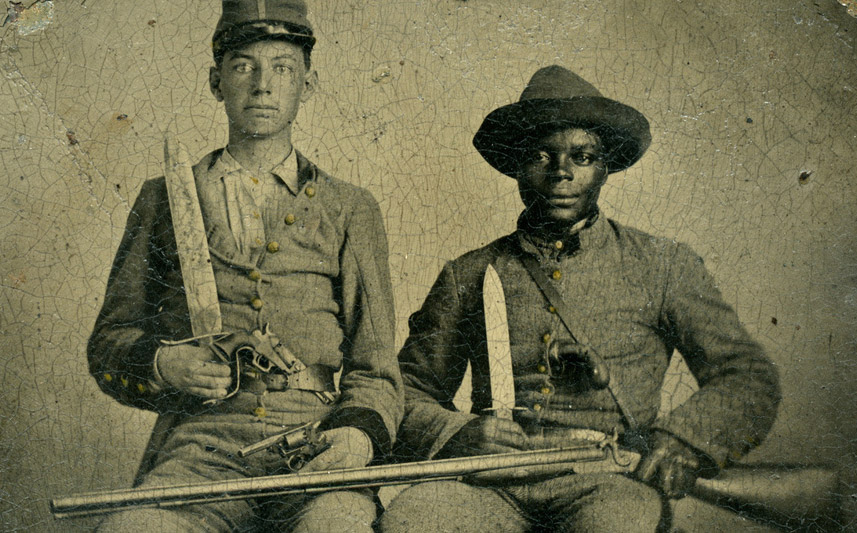
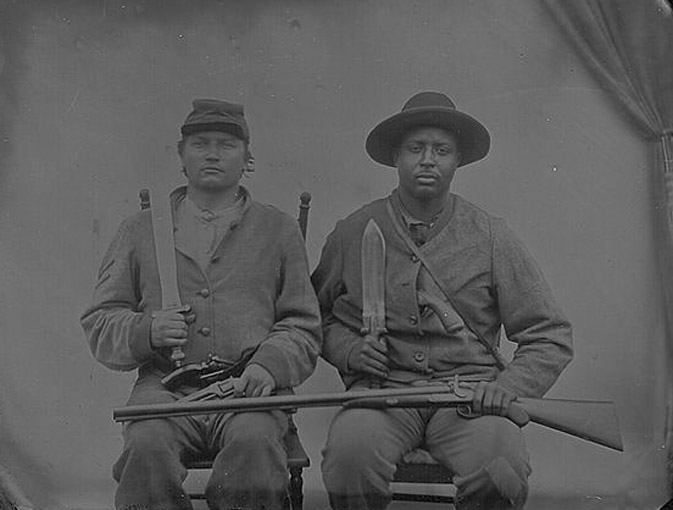
In fact, the Cherokee, Creek, Seminole and Choctaw Nations each had a Representative in the Confederate Congress at Richmond.
Another tantalizing fact is that Cherokee General Stand Watie was the last Confederate military leader to surrender in 1865!
Lastly, American Indians even owned thousands of black slaves!
Like much of history, more system lies.
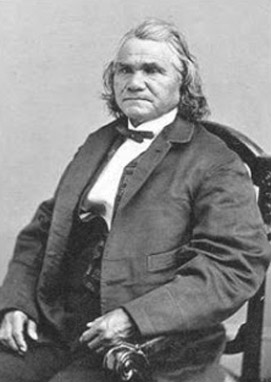
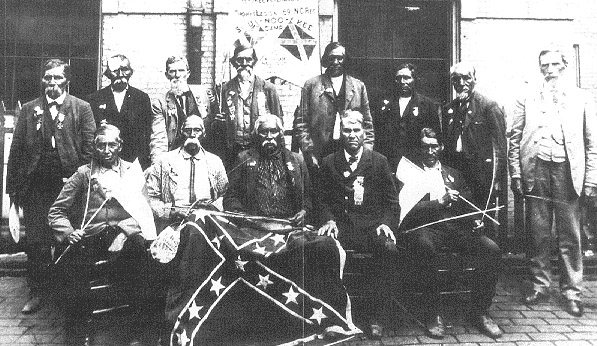






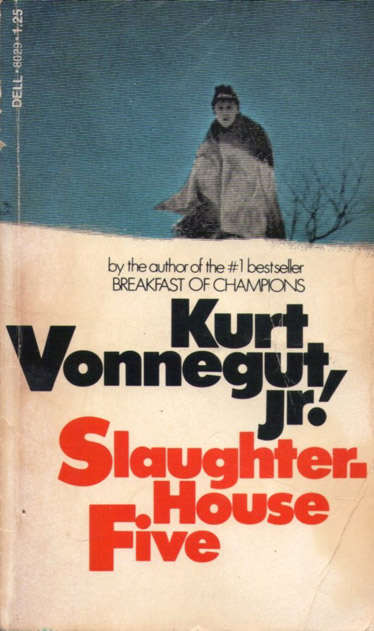
American planes, full of holes and wounded men and corpses took off backwards from an airfield in England. Over France, a few German fighter planes flew at them backwards, sucked bullets and shell fragments from some of the planes and crewmen. They did the same for wrecked American bombers on the ground, and those planes flew up backwards to join the formation.
The formation flew backwards over a German city that was in flames. The bombers opened their bomb bay doors, exerted a miraculous magnetism which shrunk the fires, gathered them into cylindrical steel containers, and lifted the containers into the bellies of the planes. The containers were stored neatly in the racks. The Germans below had miraculous devices of their own, which were long steel tubes. They used them to suck more fragments from the crewmen and planes. But there were still a few wounded Americans, though, and some of the bombers were in bad repair. Over France, though, German fighters came up again, made everything and everybody as good as new.
When the bombers got back to their base, the steel cylinders were taken from the racks and shipped back to the United States of America, where factories were operating night and day, dismantling the cylinders, separating the dangerous contents into minerals. Touchingly, it was mainly women who did this work. The minerals were then shipped to specialists in remote areas. It was their business to put them into the ground, to hide them cleverly, so they would never hurt anybody ever again.'

The Secret Life of Rudolf Hess


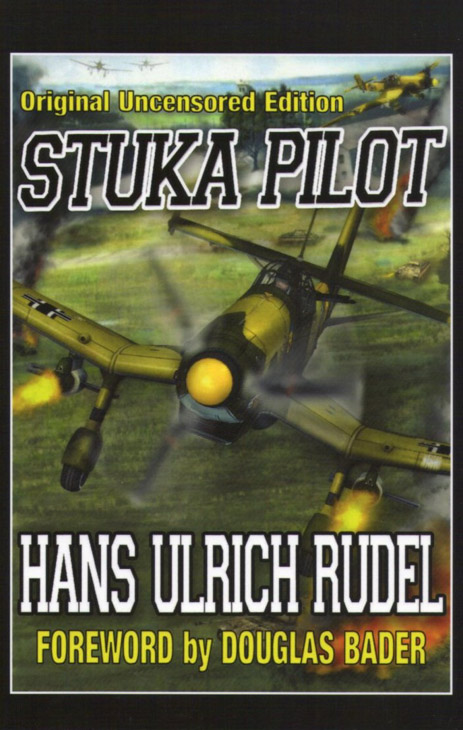
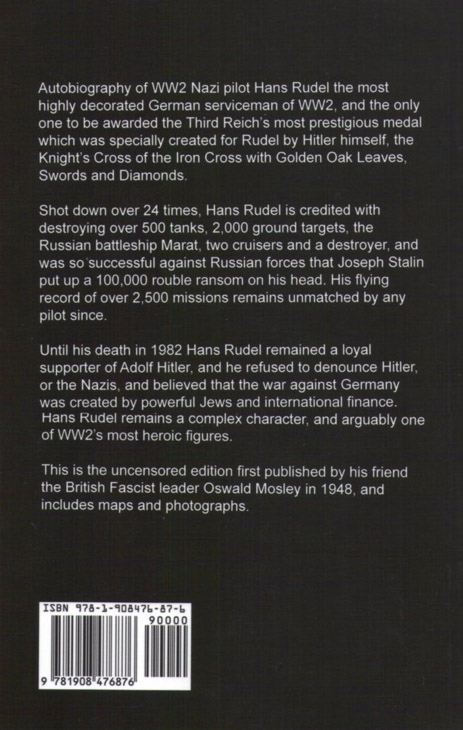
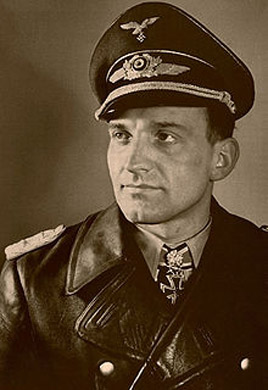
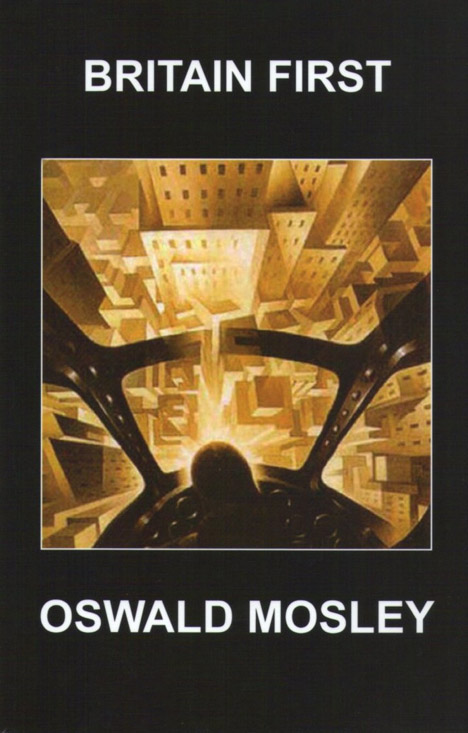
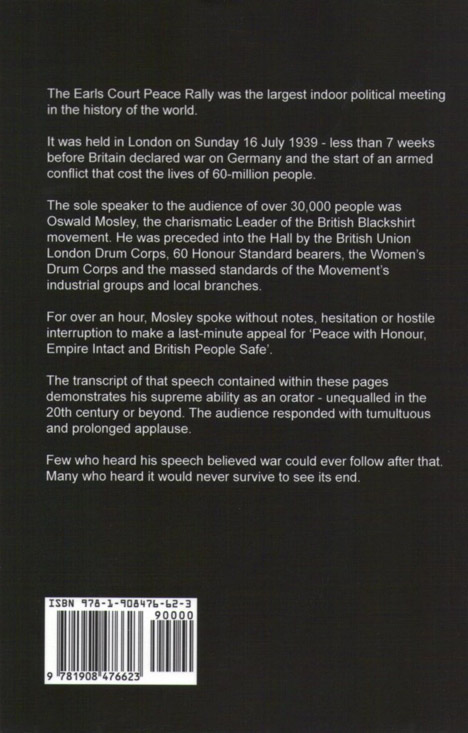
In search of the blood Countess of Transylvania
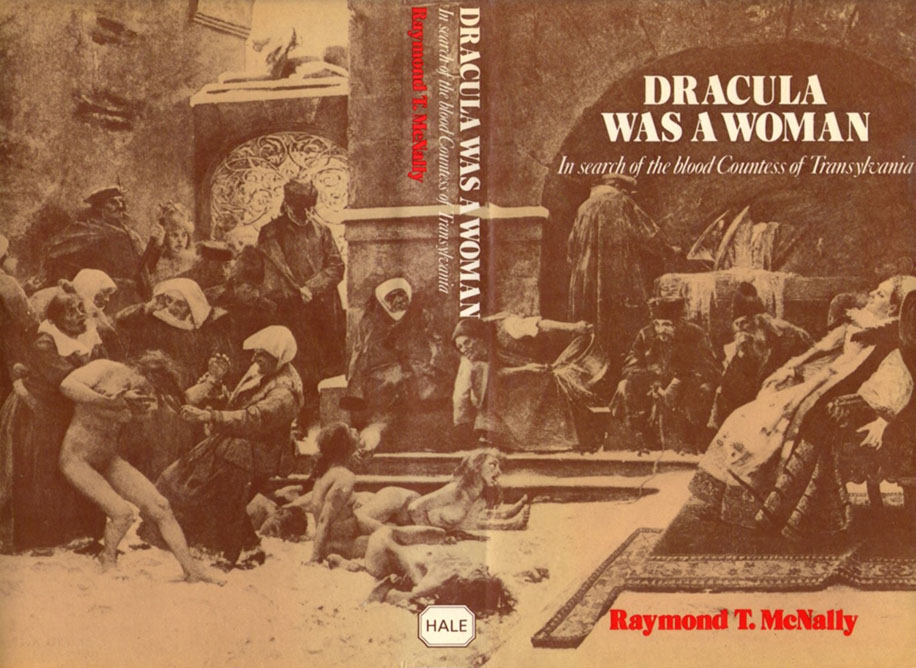
Don't let any harm come to Elizabeth Bathory, let her remain healthy and invincible!
Send, O send, you powerful Clouds, ninety cats.
I command you, O King of the Cats, I pray you, may you gather together, even if you are in the mountains,
waters, or on the roofs, or on the other side of the ocean!
May these ninety cats appear to lacerate and destroy the hearts of the king...'


I wonder what great and awesome magicks he was holding back from me! hehe... These pathetic images are from April 8, 2002.]

My Commando Operations -
The Memoirs of Hitler's Most Daring Commando
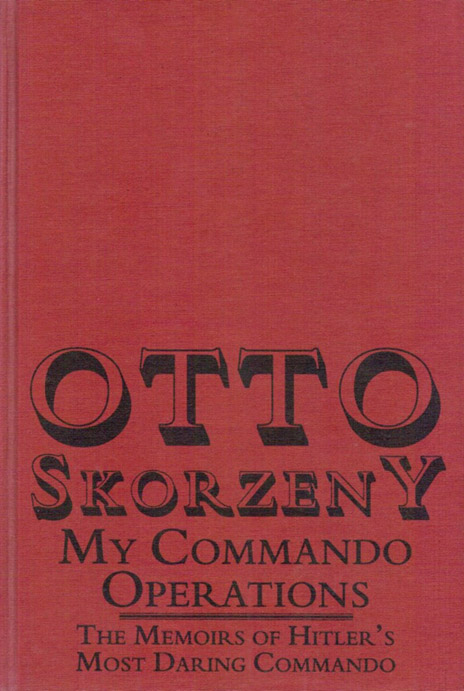
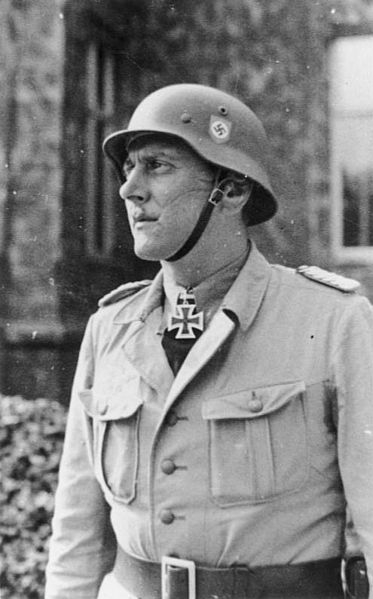
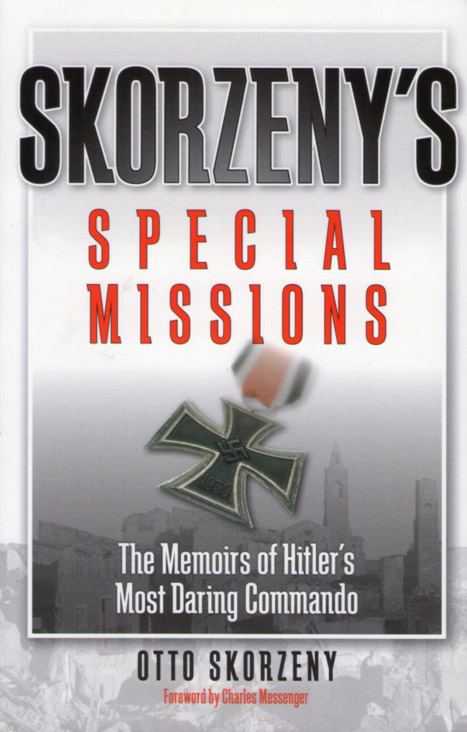
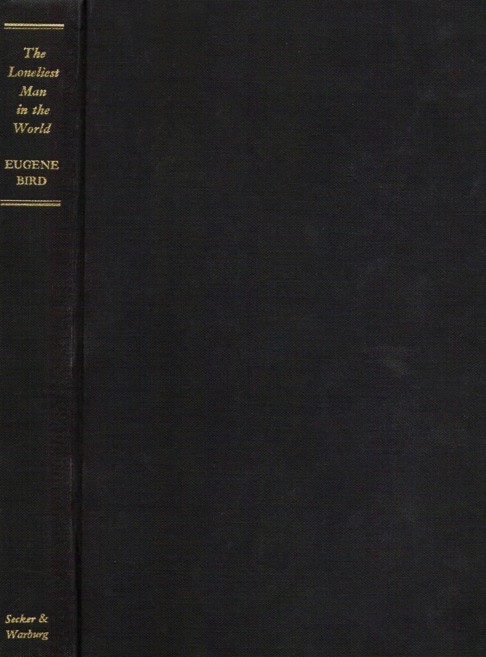
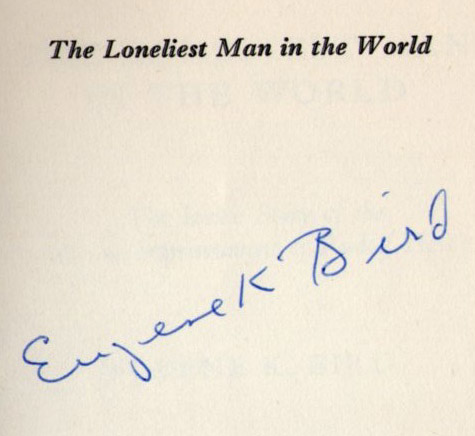
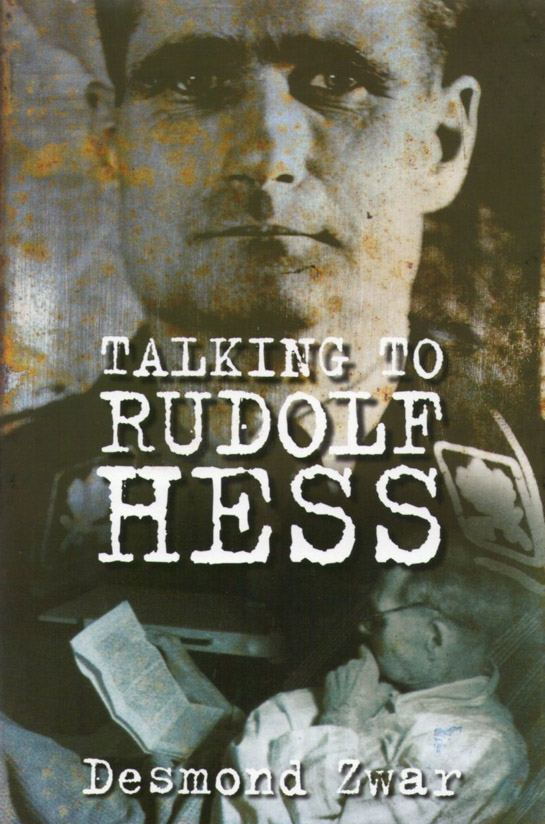
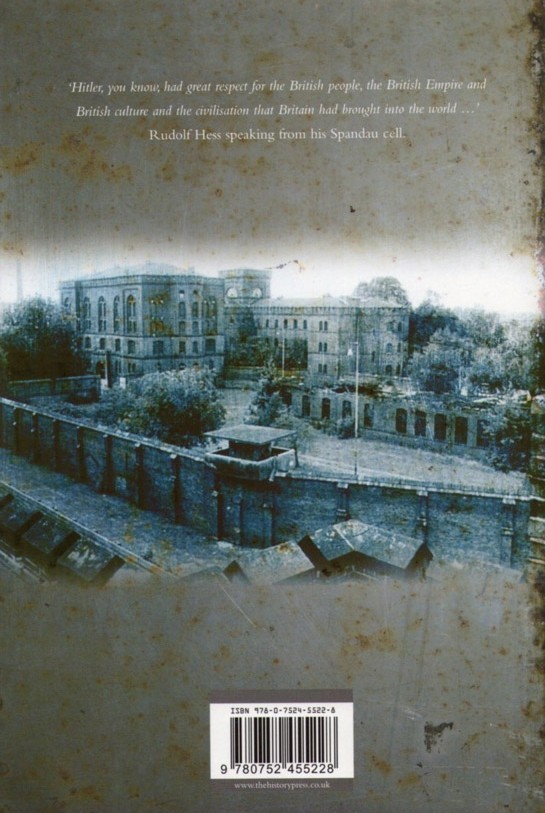
An Airborne Soldier's Thirty-five Months in Vietnam
